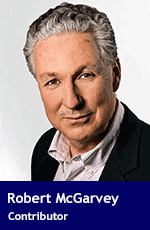 A First Nations friend of mine recently told me a remarkable story of an elder of his community who was recovering from illness.
A First Nations friend of mine recently told me a remarkable story of an elder of his community who was recovering from illness.
My friend thought the elder was about to drift away to sleep, but then suddenly he spoke.
“I’ve had a long life, and I’ve seen much suffering, but I’m not defeated. I dream and in my dream I see a better future for my grandchildren.
“When the white man came, we knew we would lose a lot. What we didn’t know is they would take what was most precious. We lost our future and that was the worst thing. We used to be a proud people, we had our life and our community was strong, because we were masters of our own fate. Now we must recover our future and our pride.”
My friend looked at me and said, “We cannot go back, we must go forward.”
Then he said, “We have a lot to learn, you know, but we have much to teach as well.”
“The white man takes from the land, but doesn’t respect it. The land feeds us all, and the wind and the water flow through our veins. We will always be here, so we protect the land from harm.”
Having worked in the mining and energy industries most of my career, I knew he was right. We don’t think of the land in this intimate and balanced way. We’re very good at things like exploration, geology and production engineering, but the land is just an inconvenience to be overcome.
I could not help thinking of my good friend Mark Anielski. Mark’s an economist, a colleague and an exception to the norm. He’s been championing nature and the environment in a new approach to community planning, one that encompasses the science of well-being.
Mark maintains that well-being begins with the natural environment. As the primary source of all life, a healthy natural environment is critical to individual and community well-being. A community’s material well-being is also important. The world we live in demands we develop our God-given talents and then contribute actively to make a living. A community’s ability to generate good jobs and to support local entrepreneurial opportunities is the key to stable livelihoods and material well-being.
Such well-being is dependent on our mental and physical health, the strength of individuals’ core relationships and what Mark calls happiness, which is another name for spiritual well-being.
As my First Nations friend spoke, he seemed to land on each of these elements as part of his dream of a better future for his children and grand-children.
He didn’t say ‘happiness’ in so many words, but he clearly wanted a kind of spiritual awakening. He spoke of the need to get his people out of dependency, off the poison of welfare and create the jobs that will give individuals the dignity of using their skills productively. He spoke of the need to eliminate drug abuse, and to improve the physical and mental health of everyone.
He wanted his grand-children to be proud of their nation knowing its history and speaking their language. But he also recognized they would have to have the ability to fit seamlessly into the modern world.
“We can’t make this happen on our own,” he said. I felt he was speaking through me to the world I inhabit, the broader community.
For too long we have denied our responsibility to support First Nations and other indigenous peoples. It starts with respecting their lives and culture, but it also demands more than transfer payments and welfare. It means giving full support in helping indigenous communities across the board.
Helping indigenous people achieve their dream of community well-being would start the healing process. It would begin to recover the wounded relationships that exist between indigenous peoples and the broad population of Canada.
Doing so would also teach us about the art of living, and connect us to this land, its bounty and life sustaining strength, while reminding us that we must respect and protect our world to ensure the well-being of all.
Robert McGarvey is an economic historian and former managing director of Merlin Consulting, a London, U.K.-based consulting firm. Robert’s most recent book is Futuromics: A Guide to Thriving in Capitalism’s Third Wave.
Robert is one of Canada’s top contributors. Why aren’t you?
The views, opinions and positions expressed by columnists and contributors are the author’s alone. They do not inherently or expressly reflect the views, opinions and/or positions of our publication.


